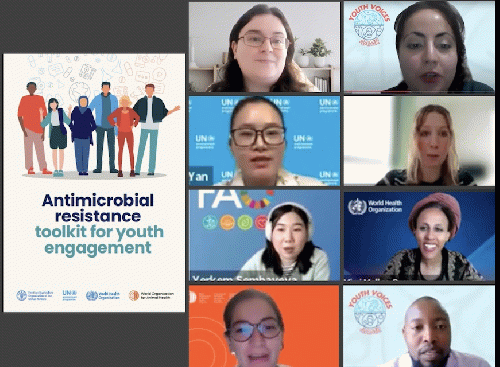Engaging youth in tackling antimicrobial resistance to protect health and food security
SHOBHA SHUKLA - CNS
Youth are critical change-makers not only as future prescribers and users of antimicrobials but also as influencers of the behaviour of their peers, parents and community. Strengthening youth engagement in our response to antimicrobial resistance (AMR) can go a long way in addressing this global threat that is directly responsible for 1.27 million deaths and contributes to nearly 5 million deaths per year, apart from causing a loss of USD 3.4 trillion annually to global economy.
It is imperative to harness youth energy by equipping them with the knowledge and tools needed to take impactful actions to tackle AMR. Keeping this in mind the Quadripartite Joint Secretariat on AMR (Food and Agriculture Organization of the United Nations - FAO, the United Nations Environment Programme - UNEP, the World Health Organization - WHO, and the World Organisation for Animal Health - WOAH) - have jointly developed an "AMR toolkit for youth engagement," that was launched earlier this month in three languages (English, French and Spanish).
Mimi Melles-Brewer from the WHO AMR Awareness, Campaign and Advocacy Unit said that the overarching goal of the toolkit is to strengthen youth engagement in AMR related activities. Its set of 11 tools provide actionable guidance to equip youth-led networks and youth-serving organisations with the resources to engage young people meaningfully in AMR communication, education, and campaigns.
Lucia Escati, Communications Officer, WOAH reminded us that 2024 has been an important year to raise awareness on AMR as it was addressed in two very high-level political events:
(i) in September the 2nd UNHLM on AMR was held in New York where world leaders adopted the political declaration committing to a clear set of targets and actions, including reducing the estimated 4.95 million human deaths associated with bacterial AMR by 10% by 2030;
(ii) in November the 4th Global High-Level Ministerial Conference on Antimicrobial Resistance was held in Jeddah, Saudi Arabia. The Jeddah Commitments adopted at the meeting underscore the need for coordinated efforts to address human, animal, plant, and environmental health to combat AMR. They also stress the importance of implementing primary secondary and tertiary education programmes that strengthen the prevention component of AMR response.
(Note: You can view every article as one long page if you sign up as an Advocate Member, or higher).






